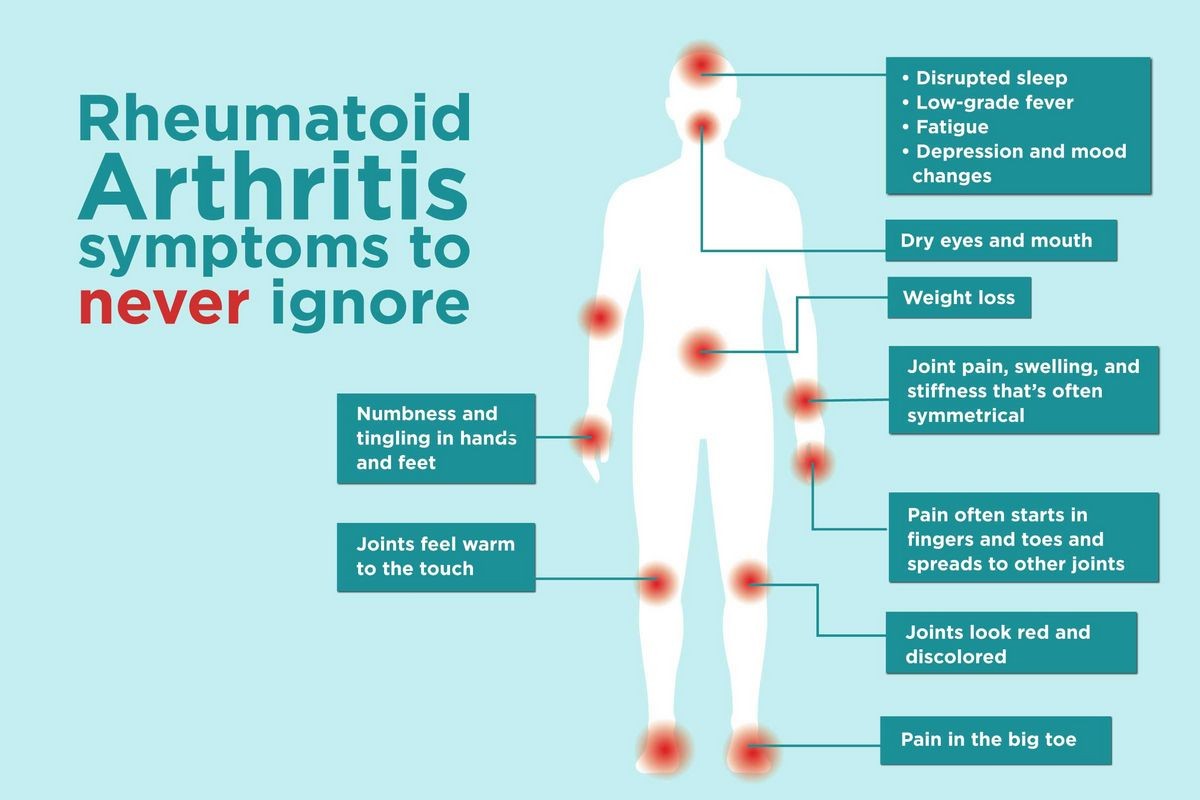
Contents
- 1 Rheumatoid Arthritis: 17 Warning Signs of Serious Complications
- 1.0.0.1 Worsening of joint symptoms
- 1.0.0.2 Lack of improvement of joint symptoms
- 1.0.0.3 Fever
- 1.0.0.4 Numbness or tingling
- 1.0.0.5 Rash
- 1.0.0.6 Eye redness
- 1.0.0.7 Vision loss of red/green color distinction
- 1.0.0.8 Nausea
- 1.0.0.9 Vomiting
- 1.0.0.10 Diarrhea
- 1.0.0.11 Constipation
- 1.0.0.12 Dark stools
- 1.0.0.13 Insomnia
- 1.0.0.14 Dizziness, lightheadedness, ringing in the ears
- 1.0.0.15 Headache
Rheumatoid Arthritis: 17 Warning Signs of Serious Complications
Patients with rheumatoid arthritis should be aware of these 17 warning signs so they can contact their healthcare professional before their health is jeopardized.
Call a doctor immediately if you have rheumatoid arthritis and experience these symptoms
Doctors, or "call partners," cover urgent medical concerns for their patients when the office is closed.
Rheumatoid arthritis can cause symptoms that indicate something unexpected is happening in the body. These warning signs can also indicate potential dangers. Contacting a healthcare professional is important to have these symptoms evaluated and appropriate action taken.
Warning signs can indicate worsening or complications of rheumatoid arthritis, side effects of medications, or new illnesses that are complicating the condition. Being aware of these signs allows patients to seek medical attention before their health is at risk.
Here are some warning signs to be aware of:
Worsening of joint symptoms
This includes increased pain, swelling, redness, stiffness, or limitation of function. The doctor will determine if these are significant. Worsening symptoms may indicate the need for medication adjustments.
Lack of improvement of joint symptoms
A primary goal of treatment is to show improvement. If symptoms worsen or do not improve, notifying the doctor is appropriate. The doctor will determine if the treatment plan is on track.
Fever
A mildly elevated temperature is common in rheumatoid arthritis, but a true fever can indicate an infection. Patients with rheumatoid arthritis are at increased risk for infections and should notify their doctor if a fever occurs.
Numbness or tingling
Swelling of joints can irritate nearby nerves, causing pain, numbness, or tingling. Nerve damage is rare but serious. Notifying the doctor is important if numbness or tingling occurs.
Rash
Rashes can occur due to medications or the disease itself. Certain medications used to treat rheumatoid arthritis can cause rashes. A rash can also indicate inflammation of blood vessels, which is dangerous.
Eye redness
Redness of the eyes can indicate an infection or blood vessel inflammation. Prompt medical attention is important in these cases.
Vision loss of red/green color distinction
The medication hydroxychloroquine can cause a decreased ability to distinguish red and green colors. Contacting a doctor is necessary if this occurs.
Nausea
Nausea is a common side effect of medications used to treat rheumatoid arthritis. If persistent or severe, notifying the doctor is necessary to explore management options.
Vomiting
Vomiting can be caused by medications or an underlying condition. Notifying the doctor is important, as vomiting can lead to dehydration.
Diarrhea
Diarrhea can be a side effect of certain arthritis medications or the protective medication taken with NSAIDs. The doctor can make adjustments to medication to address this symptom.
Constipation
Constipation can occur due to medication use, particularly narcotic pain medications. Notifying the doctor is important in case of new constipation.
Dark stools
Dark-colored stools can indicate bleeding from the stomach. People with dark stools should notify their doctor immediately.
Insomnia
Insomnia can occur due to joint pain or medication side effects. Managing insomnia is important, and the doctor should be notified if it becomes a regular problem.
Dizziness, lightheadedness, ringing in the ears
These symptoms can be caused by medications or low red blood counts. Notifying the doctor is necessary if any of these symptoms occur.
Headache
Headaches can be a side effect of medications, particularly NSAIDs. Reporting unusual headaches to the doctor is important.
Note: These warning signs are not exhaustive. Other symptoms may also warrant urgent medical attention. People with rheumatoid arthritis should stay vigilant for these symptoms and freely contact their doctor with any health concerns at any time.


